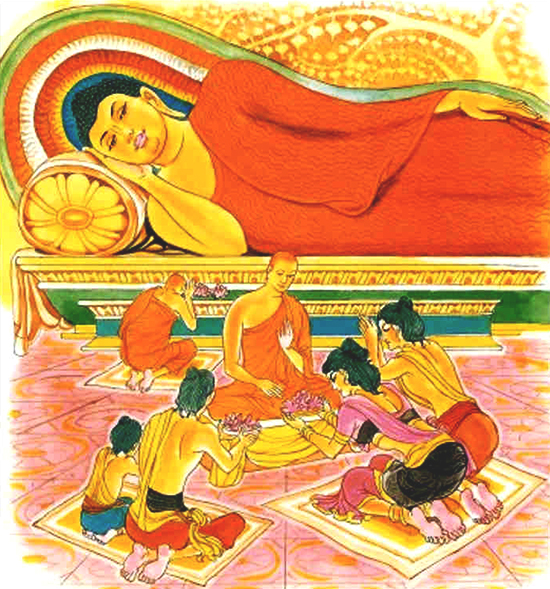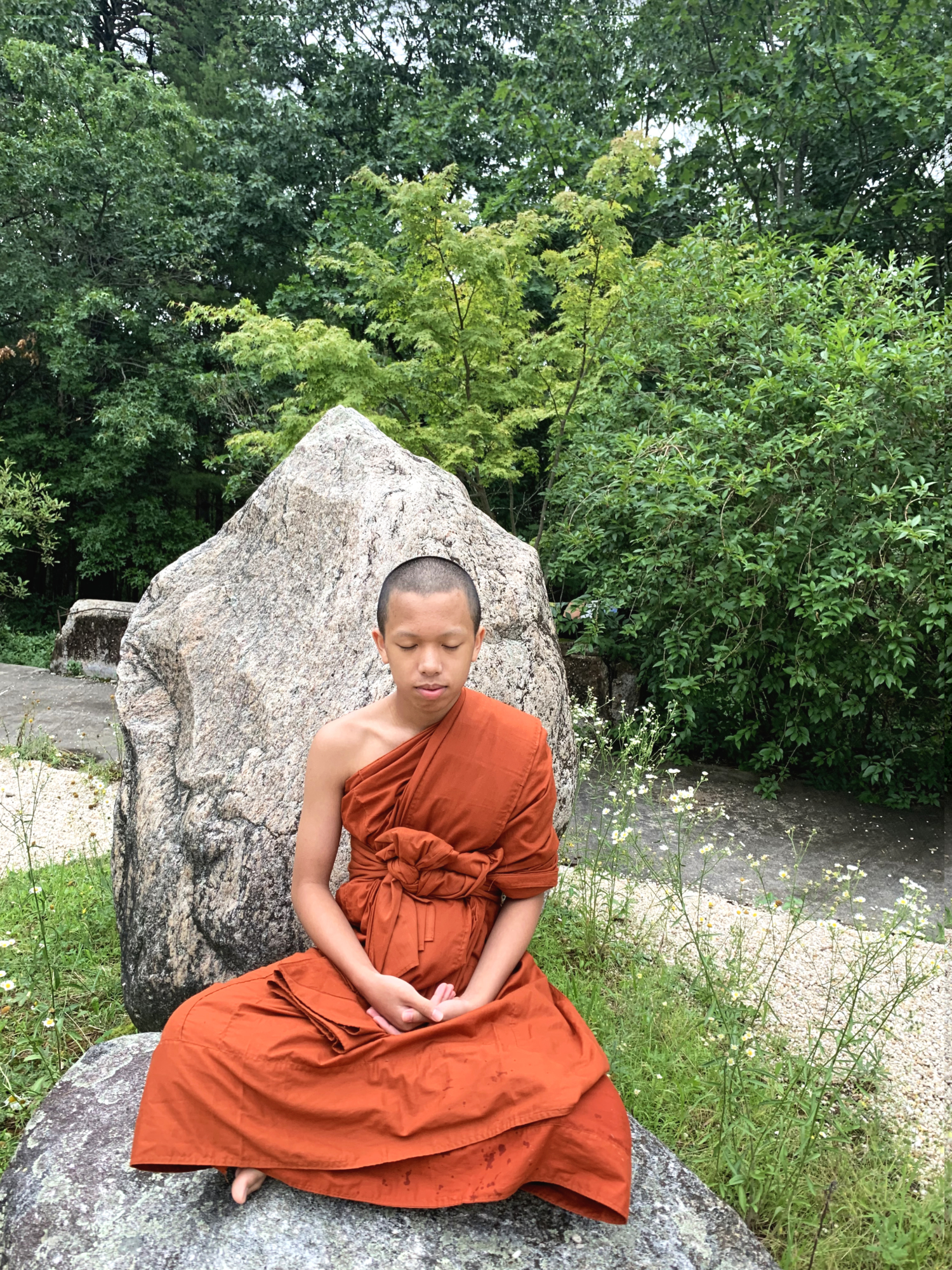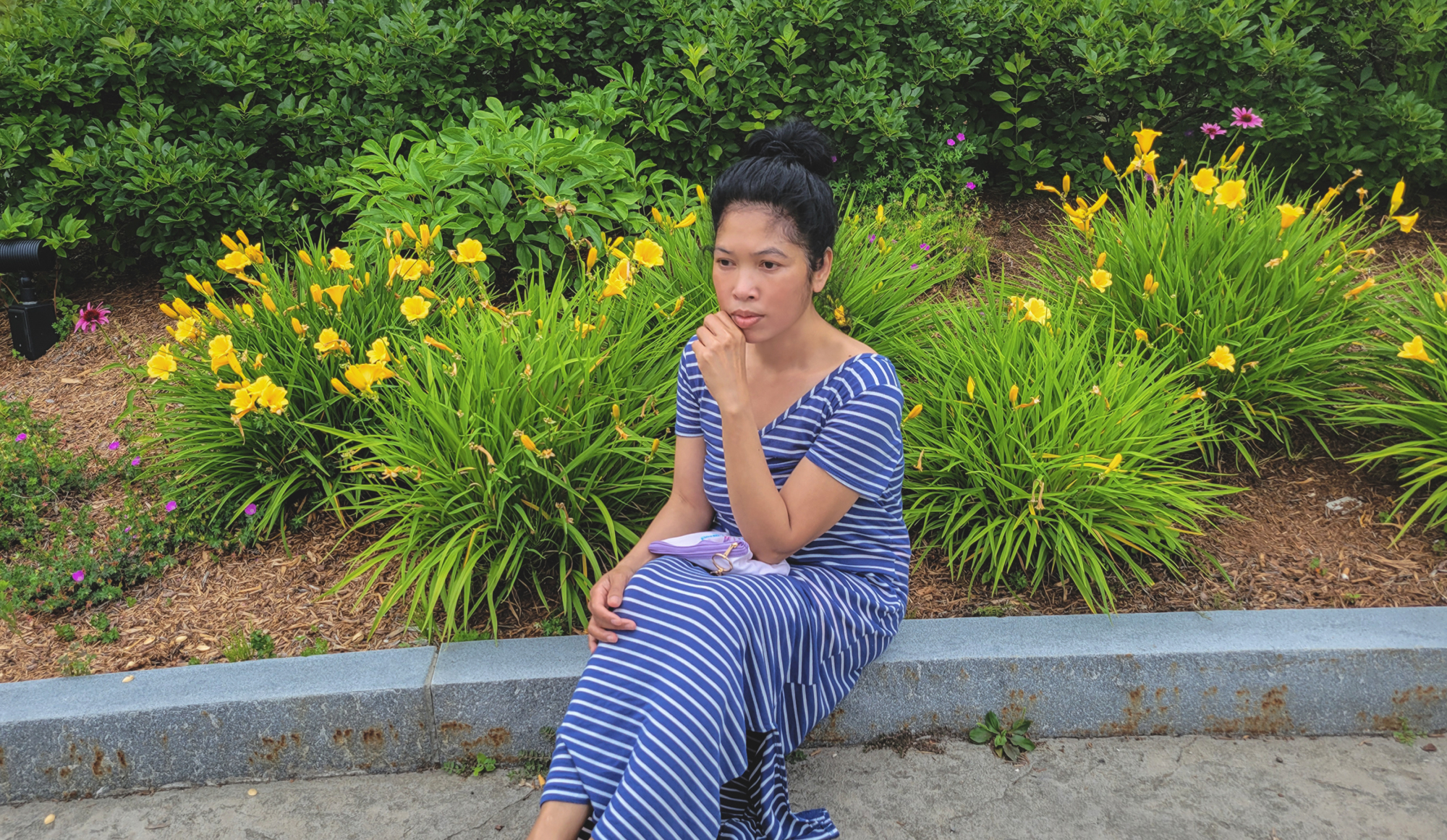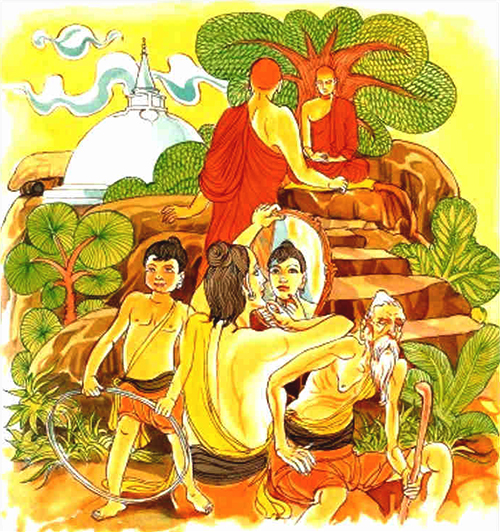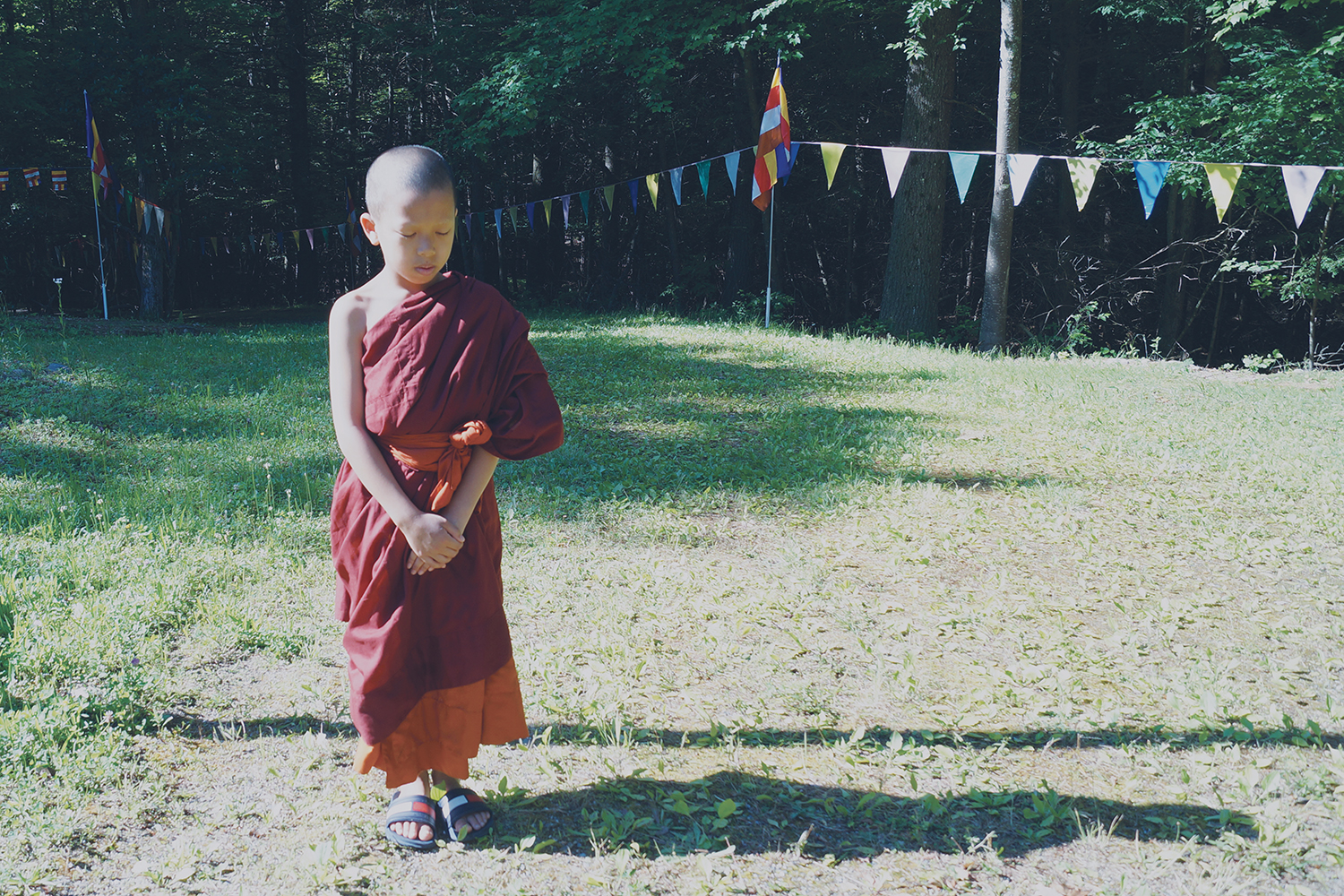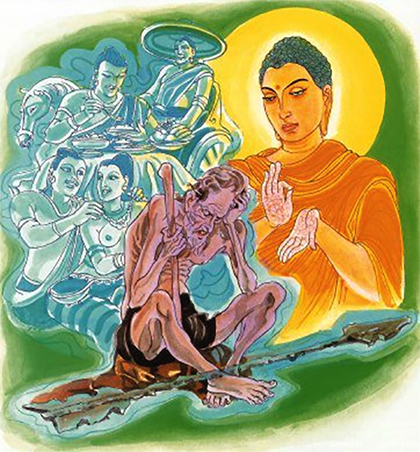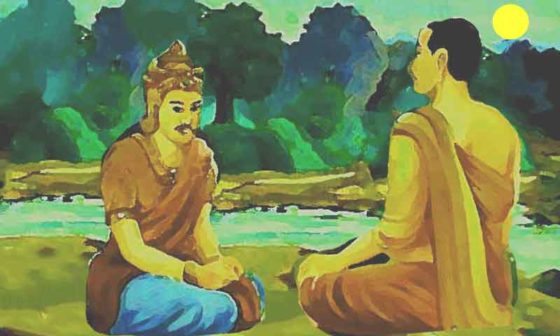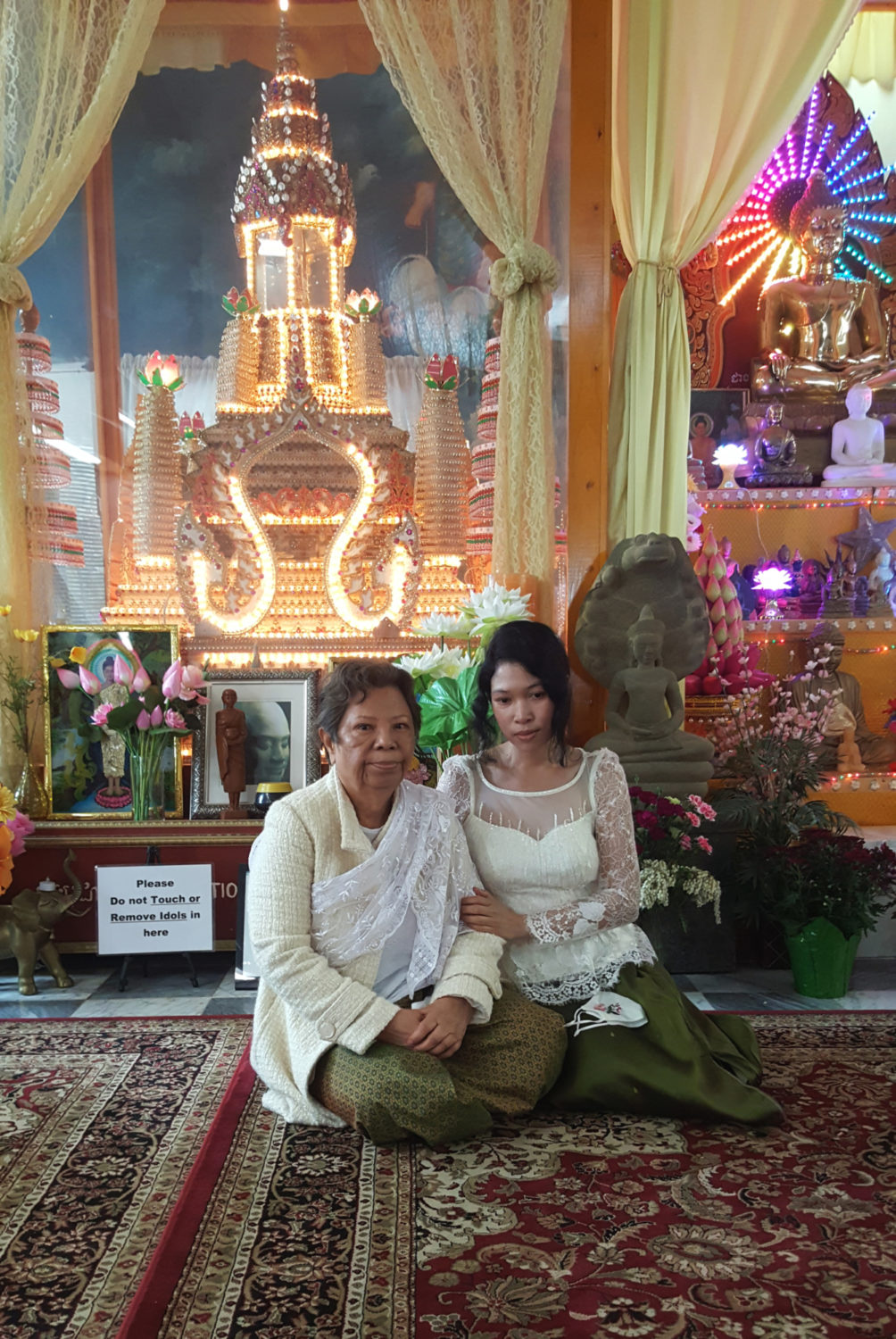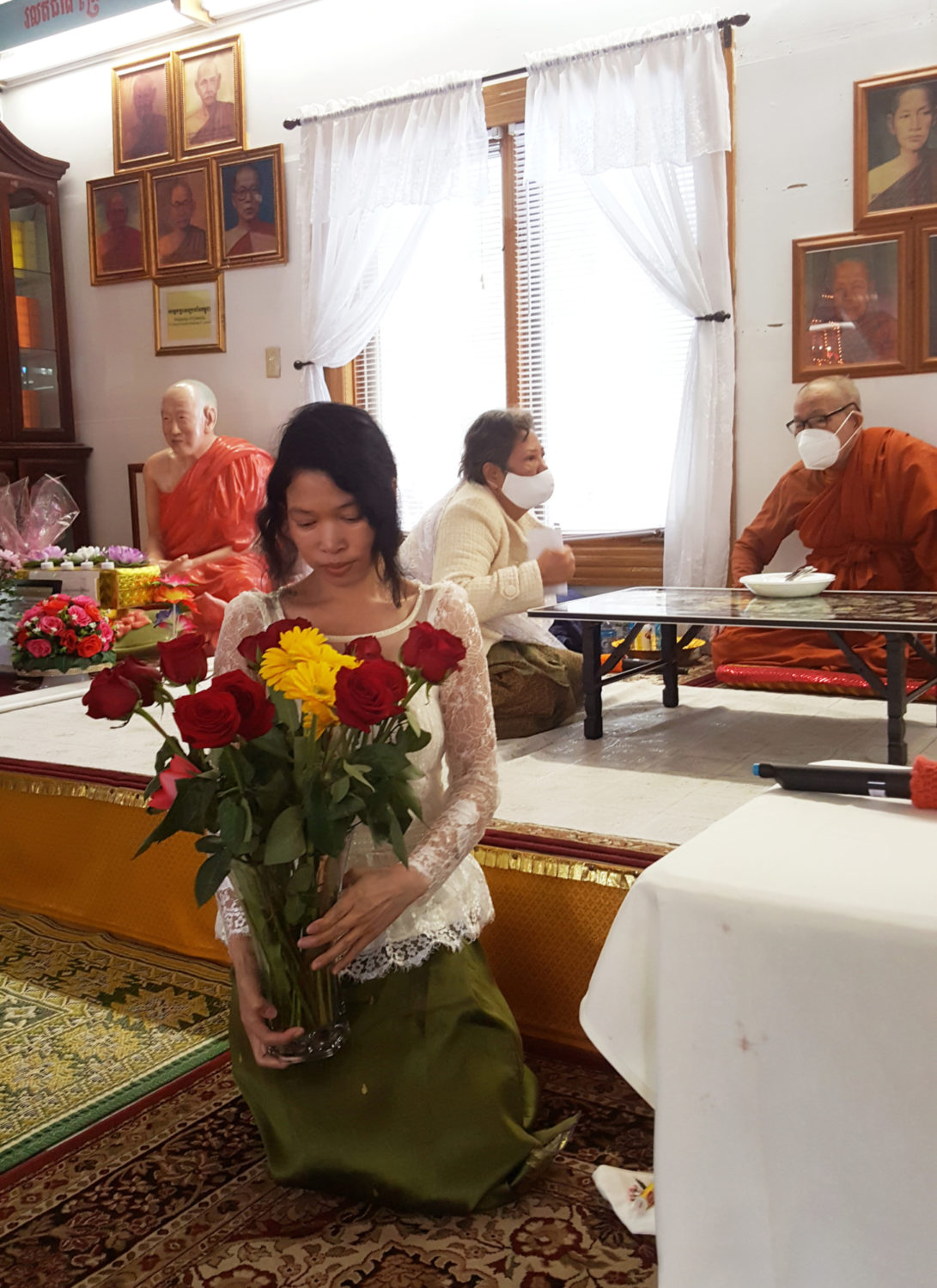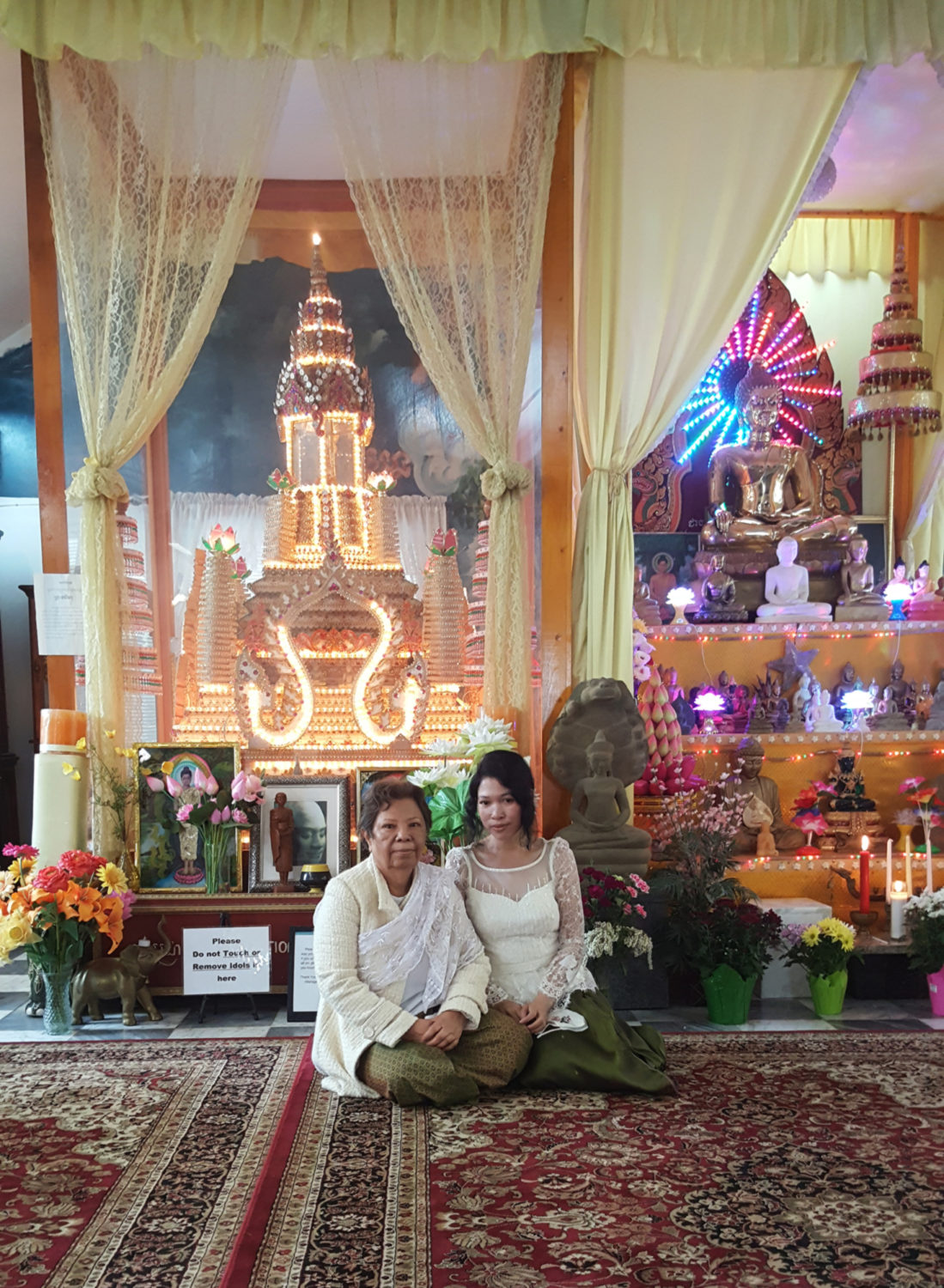The Story of Thera Upananda Sakyaputta
Verse 158: One should first establish oneself in what is proper; then only one should teach others. A wise man should not incur reproach.
The Story of Thera Upananda Sakyaputta
While residing at the Jetavana monastery, the Buddha uttered Verse (158) of this book, with reference to Upananda, a thera of the Sakyan Clan.
Upananda was a very eloquent preacher. He used to preach to others not to be greedy and to have only a few wants and would talk eloquently on the merits of contentment and frugality (appicchata) and austere practices (dhutangas). However, he did not practise what he taught and took for himself all the robes and other requisites that were given up by others.
On one occasion, Upananda went to a village monastery just before the vassa. Some young bhikkhus, being impressed by his eloquence, asked him to spend the vassa in their monastery. He asked them how many robes each bhikkhu usually received as donation for the vassa in their monastery and they told him that they usually received one robe each. So he did not stop there, but he left his slippers in that monastery. At the next monastery, he learned that the bhikkhus usually received two robes each for the vassa; there he left his staff. At the next monastery, the bhikkhus received three robes each as donation for the vassa; there he left his water bottle. Finally, at the monastery where each bhikkhu received four robes, he decided to spend the vassa.
At the end of the vassa, he claimed his share of robes from the other monasteries where he had left his personal effects. Then he collected all his things in a cart and came back to his old monastery. On his way, he met two young bhikkhus who were having a dispute over the share of two robes and a valuable velvet blanket which they had between them. Since they could not come to an amicable settlement, they asked Upananda to arbitrate. Upananda gave one robe each to them and took the valuable velvet blanket for having acted as an arbitrator. Continue reading


